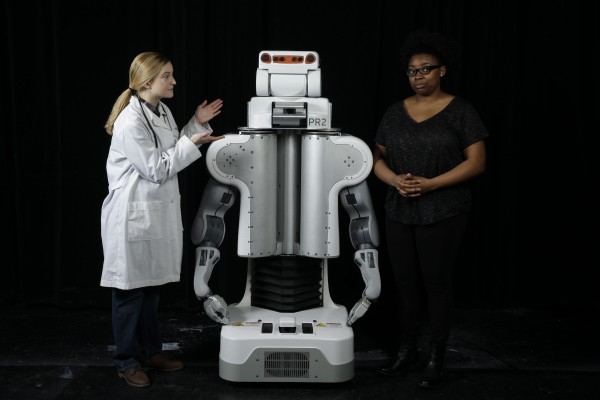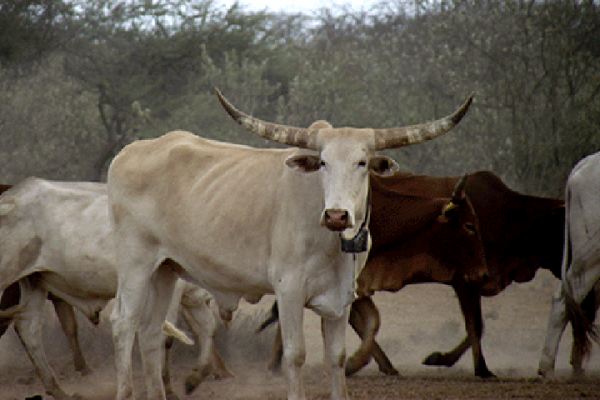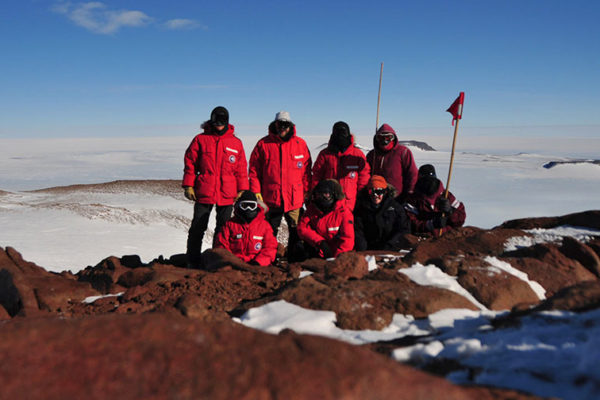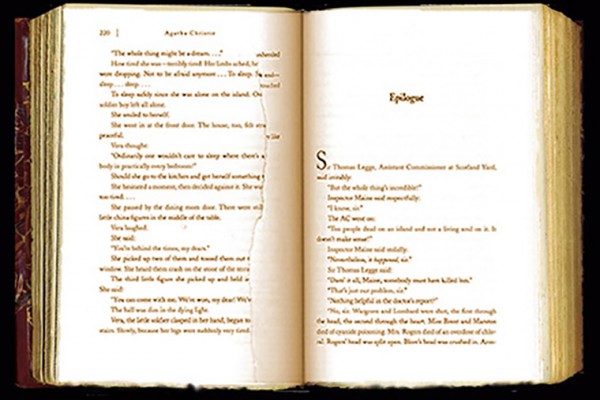More than the potato: Rediscovering Ireland’s rich history of wild plants
Ireland lost 1 million souls to hunger and disease during the potato famine and another million to immigration. But that’s not all, says Peter Wyse Jackson, PhD, president of the Missouri Botanical Garden and the George Engelmann Professor of Botany at Washington University in St. Louis. Ireland also lost its connection to the many plant species that sustained its people throughout the centuries. The ethnobotanist says the study of plants is more important than ever.
Drama, mortality and robots
Can theater movement-training techniques help real-life computer scientists improve human/robot interactions? Beginning March 26, director Annamaria Pileggi will put that theory to the test with “Sky Sky Sky,” a world premiere drama featuring three human actors and one PR2 robot. Performances take place in the A.E. Hotchner Studio Theatre, located in Mallinckrodt Center, 6465 Forsyth Blvd.
Mind sciences explore Ferguson, racial bias and policing March 27
Scholars of philosophy, psychology, neuroscience and other sciences of the mind will discuss how insight from their disciplines can help us better understand and eliminate the effects of racial bias in policing during a free forum March 27 at Washington University.
Sedley to deliver Biggs Lecture for Assembly Series
David Sedley, PhD, an internationally acclaimed Greek philosopher, will deliver the annual John and Penelope Biggs Lecture in the Classics for the Assembly Series at 4 p.m. Thursday, March 19, in the Bryan Cave Moot Courtroom in Anheuser-Busch Hall on the campus of Washington University in St. Louis. The lecture, “What Is Plato’s Theory of Forms?” is free and open to the public.
Ancient Africans used ‘no fly zones’ to bring herds south
Isotopic analysis of animal teeth from a 2,000-year-old herding settlement near Lake Victoria in southern Kenya show the area was once home to large grassland corridors — routes that could have been used to dodge tsetse flies and bring domesticated livestock to southern Africa.
Hunting for meteorites
Every austral summer, a group of volunteers heads off to a remote region
of Antarctica to set up a field camp on the ice. For the next month, they search the ice and nearby glacial moraines for dark rocks that might be extraterrestrial in origin. Research scientist Christine Floss describes this year’s trip, which included a record-setting day.
If Mad Max and Dr. Seuss started a band …
The ziggurat drum. The nail violin. The gong array with artillery shells. The chariot of choir. If Mad Max and Dr. Seuss started a band, it might look something like Scrap Arts Music, which comes to Edison March 20 and 21. The Vancouver-based percussion ensemble builds wild, one-of-a-kind instruments from gleaming industrial salvage.
In the quantum world, the future affects the past
In the quantum world, the future predicts the past. Playing a guessing game with a superconducting circuit called a qubit, a physicist at Washington University in St. Louis has discovered a way to narrow the odds of correctly guessing the state of a two-state system. By combining
information about the qubit’s evolution after a target time with
information about its evolution up to that time, the lab was able to
narrow the odds from 50-50 to 90-10.
15 Washington University students selected to attend CGI U
Washington University in St. Louis is sending 15 students to this year’s Clinton Global Initiative University, which begins Friday, March 6, at the University of Miami. Founded by the Clinton Global Initiative, an initiative
of the Bill, Hillary & Chelsea Clinton Foundation, CGI U supports
projects that advance five focus areas: education, environmental
sustainability, peace and human rights, poverty alleviation and public
health. The university hosted CGI U in 2013.
Infante’s work published in Comparative Literature
Ignacio Infante, PhD, assistant professor of comparative literature and of Spanish in Arts & Sciences at Washington University in St. Louis, will have his article “Remaking Poetics after Postmodernism: Intertextuality, Intermediality and Cultural Circulation in the Wake of Borges” published in the winter 2015 issue of Comparative Literature (Duke University Press).
View More Stories




